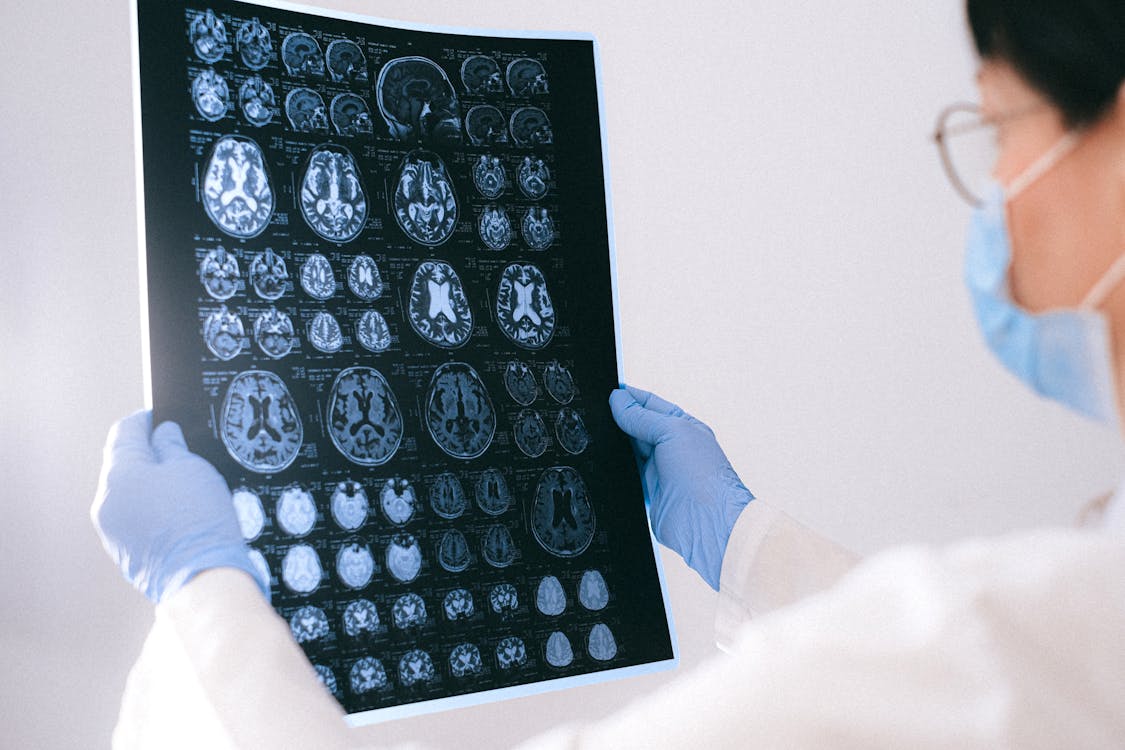
When it comes to our overall well-being, we often focus on physical fitness, mental health, and a balanced diet. However, one vital aspect that we shouldn’t overlook is our gut health. The gut, often called the “second brain,” is home to trillions of bacteria that play a crucial role in our digestion, immunity, and even mental well-being.
1- Understanding Gut Health:

The gut microbiota, often referred to as our “second brain,” plays a vital role in maintaining our overall health and well-being. These trillions of microorganisms, including bacteria, viruses, fungi, and other microbes, form a symbiotic relationship with our body, influencing various physiological processes and immune functions.
A healthy gut microbiota is essential for efficient digestion and nutrient absorption. It helps break down complex food components that our bodies cannot digest independently, such as certain fibers and carbohydrates. Additionally, the gut microbiota produces essential nutrients, like certain vitamins and short-chain fatty acids, which provide an energy source for the cells lining the intestinal walls and support a robust immune system.
Notably, the gut-brain axis is a crucial communication system that allows bidirectional signaling between the gut and the brain. This means that the health of our gut can influence our mental and emotional well-being, and vice versa. The gut microbiota produces neurotransmitters and hormones that can affect mood, cognition, and even behavior. This connection is why some researchers refer to the gut as our “second brain.”
Moreover, the gut microbiota has a significant impact on our immune system. A balanced and diverse microbiota helps maintain immune homeostasis, preventing harmful pathogens from taking over and causing infections. It also trains our immune system to recognize friend from foe, reducing the risk of allergies and autoimmune diseases.
The gut microbiota’s role in maintaining a healthy weight and metabolism has also gained attention in recent years. Certain strains of gut bacteria may influence our propensity to gain or lose weight, potentially playing a role in the development of obesity or metabolic disorders. Understanding these mechanisms could lead to novel therapeutic approaches for managing weight and metabolic health.
However, maintaining a healthy gut microbiota can be challenging in our modern world. Several factors can negatively impact the gut’s microbial diversity, including a poor diet high in processed foods and sugars, overuse of antibiotics, chronic stress, and lack of physical activity. These factors can lead to dysbiosis, an imbalance in the gut microbiota, which has been associated with various health issues, including gastrointestinal disorders, autoimmune diseases, and mental health conditions.
Thankfully, several strategies can promote a healthy gut and support the gut microbiota. Adopting a balanced and diverse diet, rich in whole foods, fruits, vegetables, and fiber, can nourish beneficial gut bacteria and improve microbial diversity. Regular physical activity has also been shown to positively influence gut health by reducing inflammation and supporting a balanced microbiota.
Probiotics and prebiotics are other essential tools for gut health. Probiotics are live beneficial bacteria found in certain fermented foods and supplements that can help replenish and restore the gut microbiota. Prebiotics, on the other hand, are indigestible fibers that act as food for beneficial gut bacteria, promoting their growth and activity.
Furthermore, as research in the field of gut health continues to advance, personalized approaches like fecal microbiota transplantation (FMT) are gaining traction. FMT involves transferring fecal matter from a healthy donor into the gut of an individual with dysbiosis to restore a healthier microbial balance. While FMT is still a relatively novel procedure, it has shown remarkable success in treating certain gastrointestinal conditions, such as recurrent Clostridioides difficile infection.
2- The Gut-Brain Connection:

Recent scientific research has uncovered a strong connection between the gut and the brain, known as the gut-brain axis. This bidirectional communication system allows the gut and the brain to influence each other’s functions, impacting not only our digestive health but also our mood, and mental well-being. The gut-brain connection is a fascinating and complex network that involves the central nervous system, the enteric nervous system (ENS), the gut microbiota, and various signaling molecules.
One of the key components of the gut-brain axis is the enteric nervous system, often referred to as the “second brain.” The ENS is a vast network of neurons located within the walls of the gastrointestinal tract, and it can function independently of the central nervous system. It regulates various aspects of digestion, such as peristalsis and enzyme secretion, ensuring efficient nutrient absorption and waste elimination.
The gut is also home to trillions of bacteria, fungi, viruses, and other microorganisms collectively known as the gut microbiota. These tiny organisms play a crucial role in maintaining gut health and influencing the gut-brain axis. The composition of the gut microbiota can be influenced by factors such as diet, stress, medications, and lifestyle choices. In turn, the gut microbiota can produce neurotransmitters and other bioactive compounds that can directly influence brain function and behavior.
The gut and brain communicate through a complex network of biochemical signaling pathways. For instance, the vagus nerve, which extends from the brainstem to the abdomen, serves as a major avenue for information exchange between the two systems. Through this pathway, signals from the gut can travel to the brain, influencing mood, cognition, and even memory.
Conversely, the brain can also send signals to the gut, impacting its motility and secretion. Have you ever felt butterflies in your stomach when nervous or anxious? That’s a result of the gut-brain connection at work.
Research has shown that disruptions in the gut-brain axis can contribute to various physical and mental health issues. Conditions such as irritable bowel syndrome (IBS), inflammatory bowel disease (IBD), and even certain neurological disorders like depression, anxiety, and autism have been linked to alterations in the gut-brain axis.
The role of the gut-brain connection in mental health has been a topic of growing interest in recent years. It has led to the emergence of a new field of research called “psychobiotics,” where scientists explore the use of probiotics and prebiotics to improve mental health. Probiotics are beneficial bacteria that can positively influence the gut microbiota, while prebiotics are non-digestible fibers that support the growth of these beneficial bacteria.
Studies have shown that consuming specific probiotics can alleviate symptoms of depression, anxiety, and stress by modulating the gut-brain axis. Additionally, some research suggests that certain dietary interventions can positively affect the gut microbiota, leading to improvements in mood and cognitive function.
The gut-brain connection has even raised intriguing questions about the influence of diet on mental health. For instance, the Mediterranean diet, rich in fruits, vegetables, whole grains, and healthy fats, has been associated with a reduced risk of depression and cognitive decline. The nutrients from these foods may support a healthy gut microbiota and, in turn, benefit brain function.
Understanding the gut-brain axis opens up new possibilities for therapeutic interventions in mental health. Instead of solely focusing on pharmacological treatments, healthcare professionals are now considering the potential of lifestyle changes and dietary modifications to promote mental well-being.
3- Importance of a Healthy Gut:
- Digestive Health: A healthy gut plays a vital role in proper digestion and nutrient absorption. It helps break down food, supports the growth of beneficial gut bacteria, and prevents digestive issues such as bloating, gas, and constipation.
- Immune Function: Approximately 70% to 80% of our immune system resides in the gut. A balanced gut microbiota helps support immune function, protecting us against pathogens and promoting a healthy immune response.
- Mental Well-being: The gut-brain axis influences our mental health and emotional well-being. Imbalances in the gut microbiota have been linked to conditions like anxiety, depression, and even neurodegenerative disorders.
- Nutrient Absorption: A healthy gut is essential for absorbing nutrients from the food we eat, ensuring our bodies receive the necessary vitamins, minerals, and other vital compounds in optimal health.
4- 7 Signs of an Unhealthy Gut:

An unhealthy gut can manifest in various ways, and recognizing the signs can help you take steps to improve your digestive health. Here are seven common signs of an unhealthy gut:
- Digestive Issues: Frequent digestive problems like bloating, gas, constipation, diarrhea, or heartburn can be indicators of an imbalanced gut. These symptoms may suggest that the gut is not efficiently breaking down and absorbing nutrients.
- Unintended Weight Changes: Sudden weight loss or weight gain without apparent cause could be related to gut health. An unhealthy gut may affect nutrient absorption and metabolism, leading to fluctuations in body weight.
- Fatigue or Sleep Disturbances: Chronic fatigue, insomnia, or poor sleep quality can be linked to gut health. The gut produces neurotransmitters like serotonin, which influence sleep and mood. An imbalanced gut can disrupt these chemicals, leading to sleep disturbances.
- Skin Issues: Skin conditions such as eczema, acne, or rosacea may be related to gut health. An unhealthy gut can lead to inflammation and an overgrowth of harmful bacteria, contributing to skin problems.
- Food Intolerances or Sensitivities: Developing new food intolerances or experiencing increased sensitivity to certain foods may signal an imbalanced gut. This could be due to a weakened gut lining or an altered gut microbiome.
- Persistent Bad Breath: Bad breath that doesn’t improve despite oral hygiene practices might be a sign of gut imbalance. Poor gut health can lead to imbalances in gut bacteria, resulting in foul-smelling breath.
- Mood Swings or Mental Health Issues: The gut-brain axis plays a crucial role in mental health, and an unhealthy gut can influence mood and emotional well-being. Anxiety, depression, and mood swings may be linked to gut imbalances.
It’s important to note that these signs can have various underlying causes, and other medical conditions might be responsible for some of these symptoms. If you are experiencing persistent or severe symptoms, it’s best to consult a healthcare professional for a proper diagnosis and personalized treatment plan. Improving gut health often involves adopting a balanced diet, managing stress, staying hydrated, getting regular exercise, and considering probiotic and prebiotic supplementation when necessary.
5- Improving a Healthy Gut:

- Balanced Diet: Eating a varied diet rich in fiber, fruits, vegetables, and fermented foods promotes a diverse and healthy gut microbiota. It’s important to minimize processed foods, sugars, and artificial additives, which can negatively impact gut health.
- Probiotics and Prebiotics: Probiotics are beneficial live bacteria that can be found in certain foods or taken as supplements. They help restore and maintain healthy gut microbiota. Prebiotics, on the other hand, are non-digestible fibers that nourish the beneficial bacteria in our gut.
- Stress Management: Chronic stress can disrupt the balance of gut bacteria and impact gut health. Incorporating stress management techniques such as exercise, meditation, and adequate sleep can positively influence gut health.
- Limit Antibiotic Use: While antibiotics are essential for treating bacterial infections, their overuse can disrupt the gut microbiota. It’s important to use antibiotics judiciously and discuss probiotic supplementation with a healthcare professional when necessary.
Conclusion:
Taking care of our gut health is a crucial step toward achieving overall wellness. By nourishing our gut microbiota through a balanced diet, probiotics, and stress management, we can promote proper digestion, support our immune system, and even positively impact our mental well-being.
Remember! A healthy gut is the foundation for a healthier and happier life. So, let’s prioritize our gut health and journey toward optimal well-being.
Herbomass




